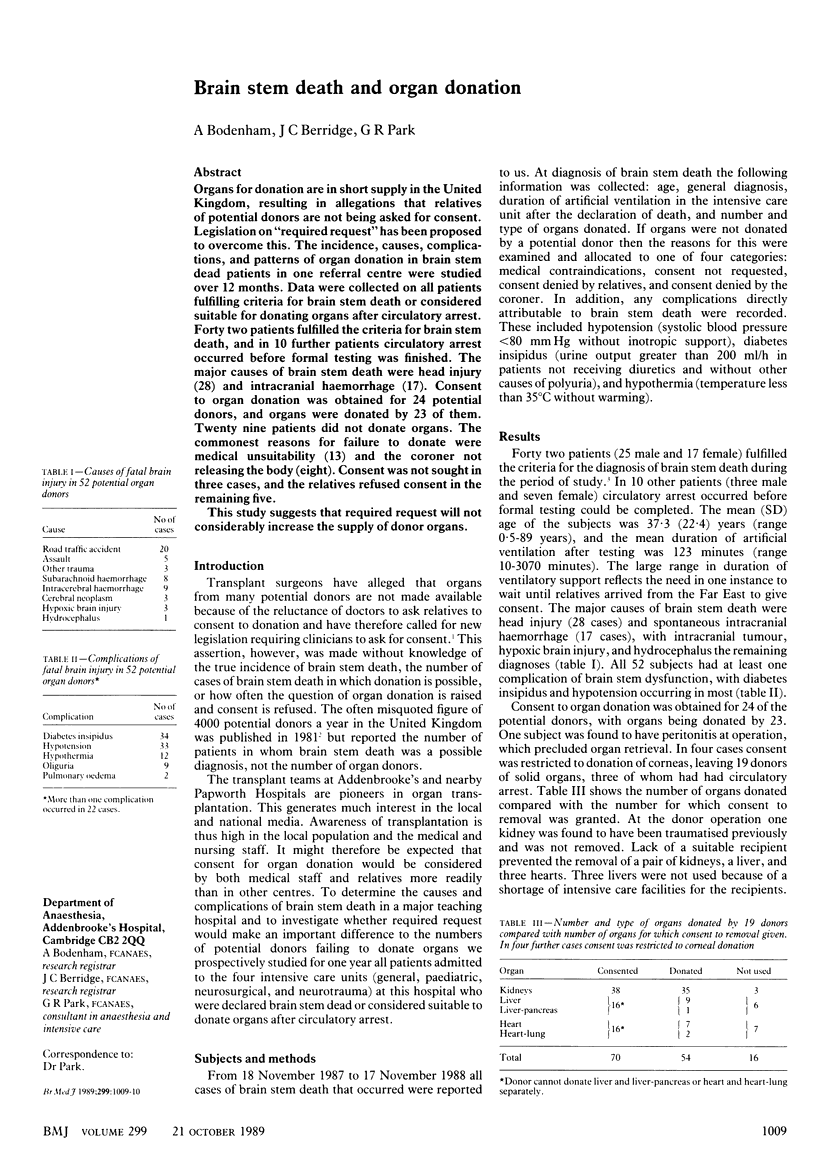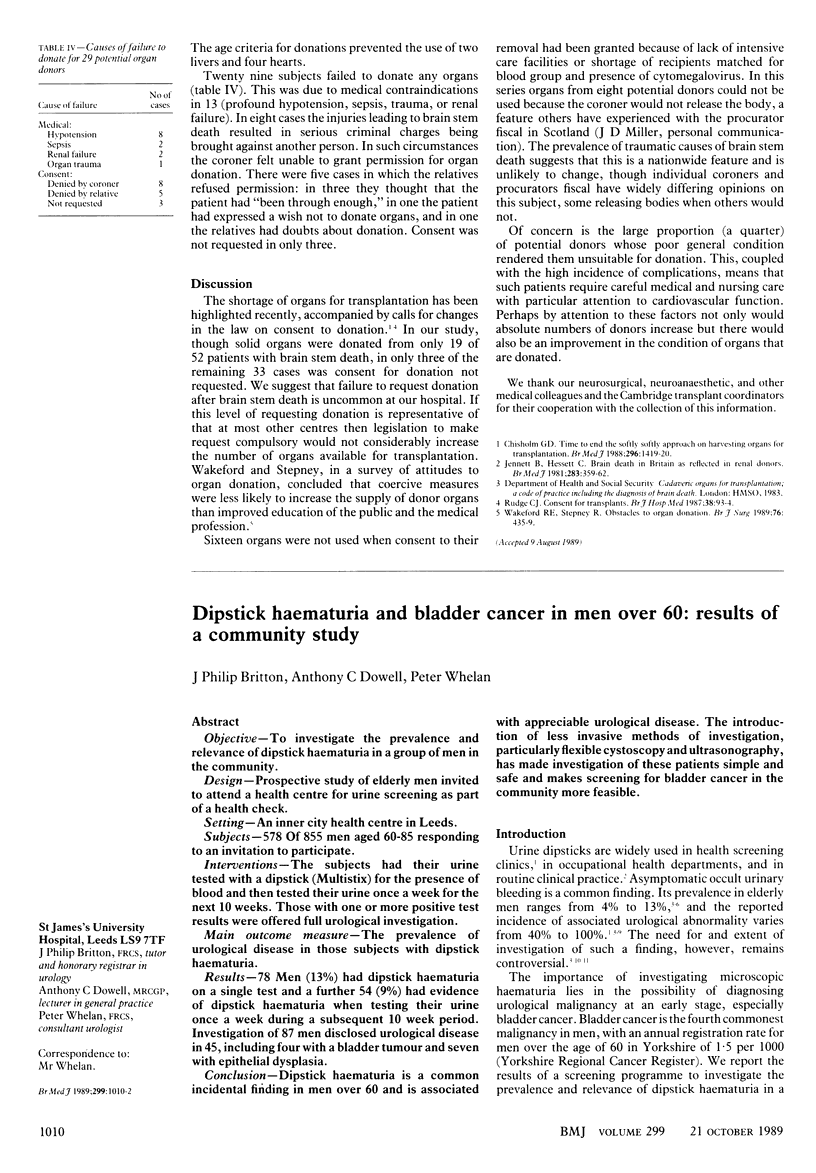Abstract
Organs for donation are in short supply in the United Kingdom, resulting in allegations that relatives of potential donors are not being asked for consent. Legislation on "required request" has been proposed to overcome this. The incidence, causes, complications, and patterns of organ donation in brain stem dead patients in one referral centre were studied over 12 months. Data were collected on all patients fulfilling criteria for brain stem death or considered suitable for donating organs after circulatory arrest. Forty two patients fulfilled the criteria for brain stem death, and in 10 further patients circulatory arrest occurred before formal testing was finished. The major causes of brain stem death were head injury (28) and intracranial haemorrhage (17). Consent to organ donation was obtained for 24 potential donors, and organs were donated by 23 of them. Twenty nine patients did not donate organs. The commonest reasons for failure to donate were medical unsuitability (13) and the coroner not releasing the body (eight). Consent was not sought in three cases, and the relatives refused consent in the remaining five. This study suggests that required request will not considerably increase the supply of donor organs.
Full text
PDF

Selected References
These references are in PubMed. This may not be the complete list of references from this article.
- Chisholm G. D. Time to end softly softly approach on harvesting organs for transplantation. Br Med J (Clin Res Ed) 1988 May 21;296(6634):1419–1420. doi: 10.1136/bmj.296.6634.1419. [DOI] [PMC free article] [PubMed] [Google Scholar]
- Jennett B., Hessett C. Brain death in Britain as reflected in renal donors. Br Med J (Clin Res Ed) 1981 Aug 1;283(6287):359–362. doi: 10.1136/bmj.283.6287.359. [DOI] [PMC free article] [PubMed] [Google Scholar]


